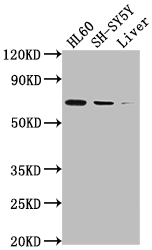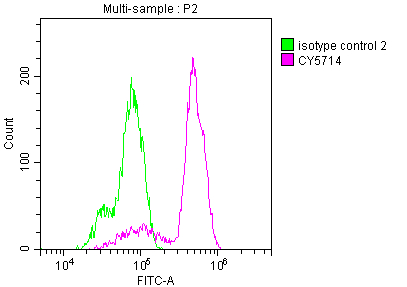The PTGS1 recombinant monoclonal antibody was prepared using a combination of protein technology and DNA recombinant technology. Initially, a synthetic peptide derived from human PTGS1 was used to immunize mice. After a specific duration, the mice's spleen was removed under aseptic conditions, and the total RNA of spleen cells was extracted. The RNA was used for reverse transcription to synthesize cDNA which served as the template for the PTGS1 antibody gene PCR amplification. The gene obtained was introduced into a vector and then transfected into host cells for culture. The PTGS1 recombinant monoclonal antibody was purified from the supernatant of cell culture using affinity chromatography. It can be utilized for human and mouse PTGS1 protein detection in ELISA, WB, and FC experiments.
The PTGS1 protein, also known as cyclooxygenase-1 (COX-1), is an enzyme involved in the synthesis of prostaglandins. Prostaglandins are hormone-like substances that play various roles in the body, including regulation of inflammation, blood clotting, and stomach acid production. PTGS1 is constitutively expressed in many cells and tissues, meaning it is present at a relatively constant level and is involved in the maintenance of basic cellular functions. It is particularly abundant in platelets, where it plays a key role in blood clotting. Nonsteroidal anti-inflammatory drugs (NSAIDs), such as aspirin, inhibit the activity of PTGS1, which can reduce inflammation and pain, but can also increase the risk of bleeding.







